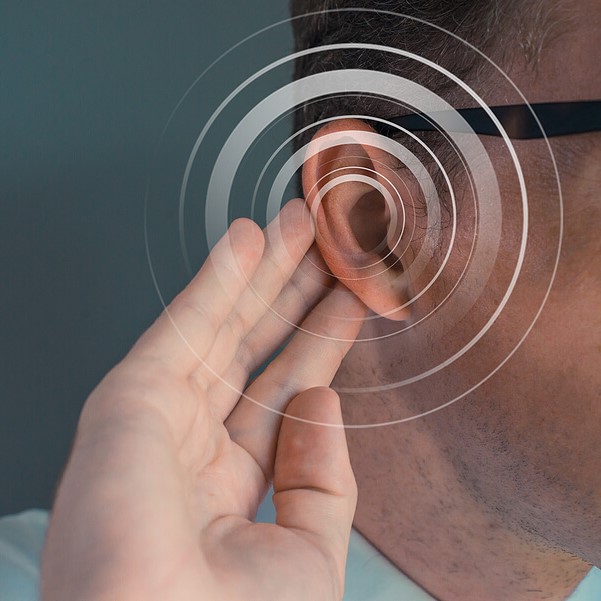Get Directions


Tinnitus Evaluation and Counseling
Tinnitus Relief: Personalized Care for Better Living
Tinnitus is a condition characterized by the perception of sounds such as ringing, buzzing, or hissing in the ears when no external sound source is present. These sounds can vary in intensity and frequency, affecting individuals differently. For some, tinnitus is a mild inconvenience, while for others, it can significantly disrupt daily life and emotional well-being. At Laurel Highlands Hearing & Balance, we are dedicated to providing compassionate care and educational resources to support those managing tinnitus.
Our personalized approach ensures that each patient receives the guidance and tools they need to improve their quality of life. With a focus on cutting-edge technology and a deep connection to the local community, we aim to empower patients to take control of their hearing health. Addressing tinnitus is not just about managing symptoms but also about enhancing overall well-being.
What Is a Tinnitus Evaluation?
Purpose of a Tinnitus Evaluation
Identifying the Severity and Underlying Causes of Tinnitus
Tinnitus evaluations begin with a detailed patient history to gather information about symptoms, lifestyle, and any potential triggers. This step helps identify whether the tinnitus is sporadic or persistent and its impact on daily activities. Hearing health professionals may also inquire about factors such as noise exposure, stress levels, and medical history. Advanced diagnostic tools, such as audiometric tests, are used to measure hearing sensitivity and determine the frequency and volume of the perceived sounds.
These tests can reveal patterns that help distinguish tinnitus related to hearing loss from other causes. For some patients, imaging studies may be recommended to rule out structural abnormalities. The evaluation also examines whether medications or other medical conditions might contribute to tinnitus. Identifying these factors is critical for developing an effective management plan tailored to each individual.

Determining If Tinnitus Is Related to Hearing Loss or Other Conditions
Many cases of tinnitus are linked to hearing loss, particularly age-related hearing changes or noise-induced damage. During the evaluation, hearing health professionals assess the patient’s hearing abilities to identify potential correlations. Hearing loss can often amplify the perception of tinnitus, as the brain attempts to compensate for missing auditory input.
The evaluation also explores whether conditions such as earwax buildup, ear infections, or middle ear disorders might be contributing to the symptoms. Systemic issues like cardiovascular disease or temporomandibular joint (TMJ) dysfunction can also play a role. By pinpointing these connections, hearing health professionals can recommend appropriate interventions or referrals to other healthcare providers. Understanding the broader context of tinnitus enables a more holistic approach to care.
What to Expect During the Evaluation Process
Patients undergoing a tinnitus evaluation can expect a thorough and supportive experience. The process begins with a consultation to discuss symptoms and concerns. This is followed by a series of diagnostic tests, including pure-tone audiometry and speech recognition assessments, to evaluate hearing capabilities. Additional tests, such as tympanometry, may be performed to assess middle ear function.
Patients are encouraged to share details about their lifestyle, stress levels, and any prior treatments they have tried. Throughout the evaluation, hearing health professionals prioritize patient comfort and ensure all procedures are explained clearly. The results are discussed in detail, with an emphasis on helping patients understand their condition. This comprehensive process lays the foundation for effective management and long-term relief.

Counseling and Support for Tinnitus Management
Counseling plays an important role in helping patients cope with tinnitus. These sessions are designed to provide education and strategies that empower patients to manage their symptoms more effectively. Hearing health professionals guide patients through understanding the nature of tinnitus and its potential triggers, fostering a sense of control and reassurance. Counseling focuses on equipping patients with coping mechanisms rather than prescribing specific therapies or devices.
Techniques such as sound therapy, relaxation exercises, and lifestyle adjustments may be discussed to reduce the impact of tinnitus. Hearing aids are often highlighted as an effective tool, as they can enhance hearing clarity and minimize the perception of tinnitus. By integrating education with practical strategies, counseling sessions help patients regain confidence and improve their quality of life.
General Information About Tinnitus
Benefits of Tinnitus Evaluation and Counseling
Tinnitus evaluation and counseling provide patients with a non-invasive and supportive approach to managing their condition. These services emphasize understanding the unique characteristics of each patient’s tinnitus and developing personalized coping strategies. Through evaluations, patients gain insights into the potential causes of their symptoms, enabling targeted interventions.
Counseling sessions foster a sense of empowerment by teaching patients practical techniques to minimize the impact of tinnitus on their daily lives. The combination of education, guidance, and ongoing support helps patients feel more in control of their condition. By addressing both the physical and emotional aspects of tinnitus, these services enhance overall well-being and provide a pathway to long-term relief.
